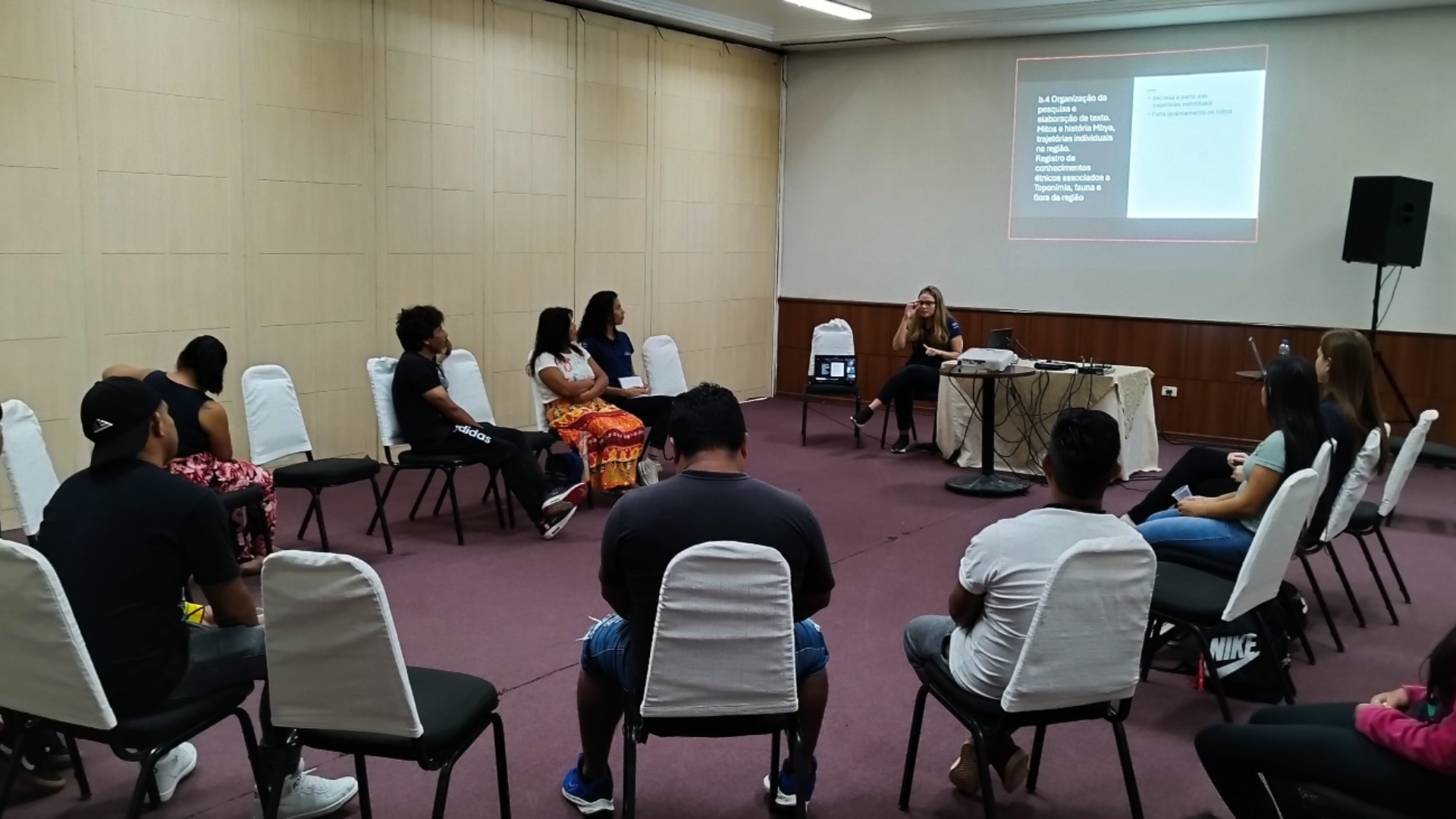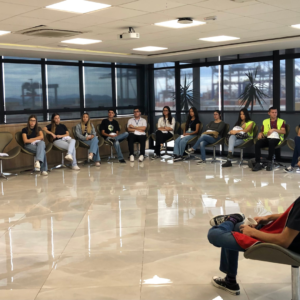In March, actions were taken to promote sustainable development and the appreciation of the Mbya Guarani culture in the indigenous villages participating in the Basic Environmental Plan for the Indigenous Component (PBACI) and the TCP Program for the Management of Guarani Mbya Cultural Assets.
On March 14, the 12th ordinary meeting of the PBACI Management Council took place, bringing together the indigenous communities, representatives of FUNAI, the developer and the technical team executing the Plan. On this occasion, all the goals were presented and discussed, as well as their current state of implementation.
The computer classes held in the villages were followed by training on how to sell indigenous handicrafts on an online platform and an introduction to text editors.
Throughout the month, agroecology activities included planting araticum, banana, cassava, sweet potato, sugar cane, babosa and guinea. Tools needed for the planting activities were also handed out. The Agroforestry Systems, Horticulture, Composting and Medicinal Plants courses began at the Marumby Agroforestry Station, located in Morretes/PR. This technical visit also included a workshop on traditional techniques for preserving the environment, in which the indigenous people contrasted indigenous and non-indigenous cultures in terms of coexistence with the natural environment.
Indigenous people traveled to villages located in Palhoça/SC and Chopinzinho/PR to access their traditional medicine. The Pindoty and Guaviraty communities also took part in a mental health event promoted by the Guarani Yvy Rupa Commission, held in Biguaçu/SC.
Fauna and air monitoring campaigns took place, assessing wild animal populations and air quality in the Indigenous Lands. As part of a navigation safety initiative, support was given to an indigenous man from Cotinga Island who passed the courses and exams required by the Brazilian Navy.
As part of the Mbya Cultural Assets Management Program, the Pindoty village was given a laptop for video editing and a guitar, an instrument used in the Mbya culture’s prayer rituals.



